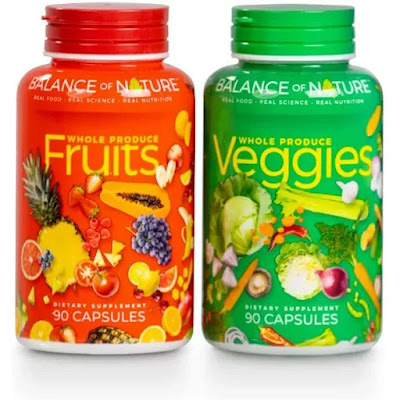Fruit and Veggie Supplements vs Fresh Fruits and Vegetables: What's the Difference?
Are supplements good substitutes for fresh fruits and vegetables?
We found that "fruits" and "veggies" supplements were not substitutes for getting the recommended daily intakes of fruits and vegetables, despite marketing claims for some saying they are. At best, only one-fifth of the adult daily requirement might be met with a suggested daily serving of any of these products. Adults need about 500 grams of fresh fruits and veggies per day. If dried and made into powders, this would equal about 50 grams per day. Most supplements provide no more than 2 to 10 grams of powdered fruits and veggies per suggested daily serving; many don't even list the amounts; and some contain greater amounts of ingredients like tapioca syrup and sugar than fruits or vegetables. In fact, you can get more fruit (and fiber) from a single apple than from most fruit supplements, and at much lower cost.
What are the health benefits of supplements that contain fruits, veggies, and other "greens"?
Greens powders, pills, and gummies are made from dried or concentrated vegetables, fruits, grasses, and certain types of algae (e.g., chlorella and spirulina) providing a variety of nutrients such as carotenoids, antioxidants, amino acids, enzymes, nucleic acids, fiber, vitamins and minerals that can have healthful benefits.
Plant-based greens and whole foods products tend to be high in fiber and low in fats, making them low in calories per gram. They also tend to be low in sodium. Some contain additional ingredients such as prebiotics, probiotics, digestive enzymes, or added fiber.Although plant-based products typically provide little protein, algae-based products made mostly from chlorella or spirulina are rich in protein, which makes up about two-thirds of their weight, and some products include protein from plant sources, such as peas and soy.
Chlorella may help lower triglycerides and total cholesterol. However, be aware that many of the uses for which greens and whole foods supplements are promoted are not backed by science. For example, claims of antioxidant activity and "alkalinizing" effects do not necessarily translate into proven health benefits; the evidence is weak regarding a blood sugar-lowering effect of spirulina; and a study of the systemic anti-inflammatory and cholesterol-lowering effects of Juice Plus+ showed no significant benefits compared to placebo (see What They Do).
What problems did ConsumerLab find with fruits, veggies, and greens supplements?
Which fruits, veggies, and green supplements are best?
How to Use?
Products sold as powders are typically mixed with water or other liquids. Due to the somewhat unpleasant taste of chlorella and spirulina, it is recommended that those powders be mixed into more flavorful beverages or foods.Cautions with fruits, veggies, and greens supplements:
- While most of the food ingredients in greens products are generally safe, some products may contain herbal extracts, vitamins and minerals, and other ingredients that could potentially cause unexpected side-effects and/or interact with other nutrients and drugs.
- Chlorella may cause gastrointestinal side effects such as diarrhea or constipation. Allergic reactions and other adverse events have been associated with the use of spirulina (see Concerns and Cautions for more details).
- Although many greens products contain a long list of ingredients, specific amounts for each ingredient are not always provided. If you are looking for a particular active ingredient and the amount is not listed, consider getting it from a separate supplement that lists the amount on the label (see ConsumerTips).



.png)



Comments
Post a Comment